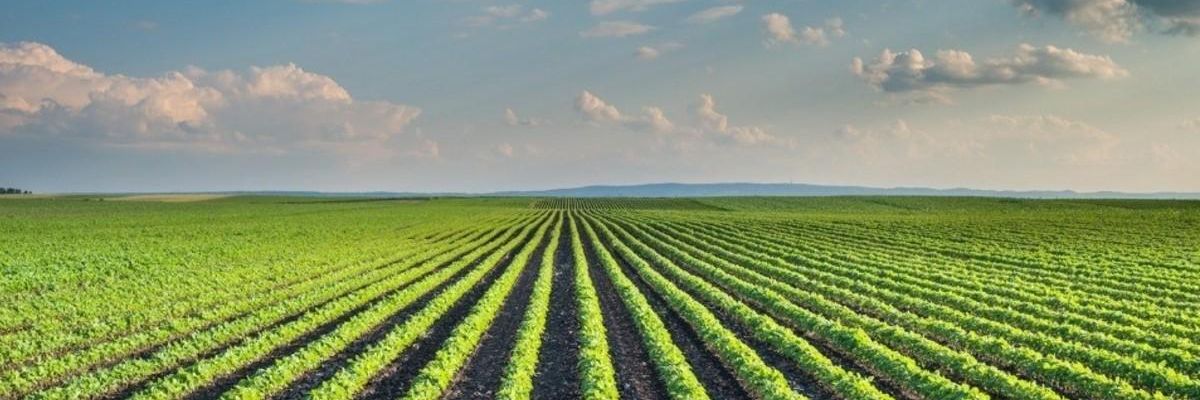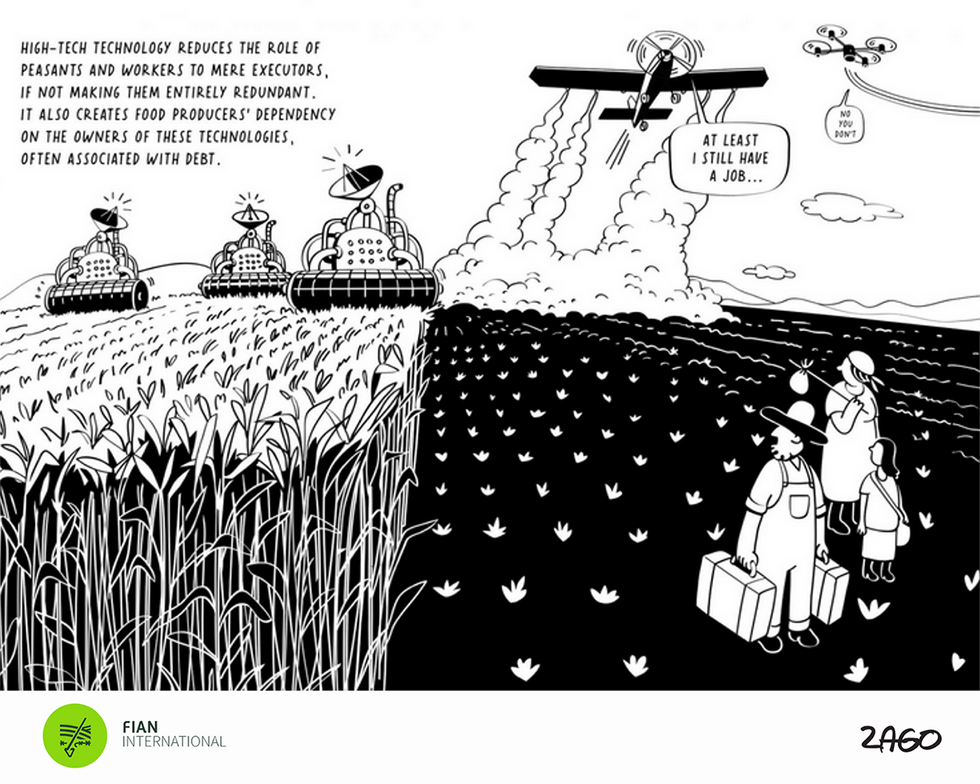Agrochemical corporations and international organisations equip farmers with hardware technology--chemical inputs, tractors and drones. Tech firms provide the compatible software applications and control the agricultural and climate data flows.
Many corporate players have jumped onto the digital technology bandwagon: conglomerate Monsanto-Bayer offers the "Climate Fieldview" platform to get direct access to agricultural data from the field.
Industrial
BASF runs for the same reason the "Xarvio" app, ChemChina-Syngenta "Cropio" and Microsoft the Azure "FarmBeats" platform.
They offer farmers advice on what and how to plant in exchange for their data. Farmers can upload historical field data and information on seeds and planting in the app.
Tracking devices on a tractor and other equipment can provide additional data on practices on the field. The corporation can then overlay the received information with its data sets--such as on soil quality, pests and diseases--and make recommendations to farmers on what to buy to tackle specific problems.
Digital technologies are not bad per se, but how most of these tech-savvy ways of improving food systems are designed and implemented is likely to do more harm than good.
Controlled by profit-rapacious corporations, they are mainly about increasing efficiency to boost productivity of intensive industrial farming and its large-scale monocultures.

Agroecology
The heavy use of chemical inputs--fertilisers, herbicides and seeds--and fossil fuelled machinery of industrial farming is a major cause of the global food and climate crisis.
Social injustices, human rights violations and the firm dependency on often costly chemical inputs and machinery are keeping smalls farmers in a poverty spiral.
Digital technologies in agriculture are failing to address these underlying causes of hunger and malnutrition. In fact, they are likely to further lock up small farmers in another dependency cycle.
Once they enjoy the corporate digital services, they are encouraged and often also obliged to buy corporate products, such as chemical inputs, and sell their products to partner corporations.
Ironically, farmers who are practicing agroecology and mixed cropping are unable to "make use" of the corporate advice. Agroecology works without chemical inputs and with and not against nature.
Pesticides
What is more, many small farmers often lack access to a decent internet infrastructure and digital technology devices. This digital divide further disadvantages them as they cannot benefit from digital farming initiatives.
Promoting these corporate-led digital approaches in political forums--such as the past UNFSS and the upcoming UN Climate Conference of Parties (COP26) in Glasgow--will increase the already existing enormous concentration of corporate power in the food and agricultural sector.
A recent report of the UN Special Rapporteur on the Right to Food, Michael Fakhri, urges the UN and its member states to adopt binding rules to bridle rising corporate power.
A partnership between the Alliance for a Green Revolution (AGRA), the US-financed philanthropic organisation, and Microsoft in 2020 exemplifies another powerful joined corporate initiative.
Data has turned into a commodity. AGRA's local networks help Microsoft to boost its digital platform and "chatbot" app Kuzabot. Microsoft then sells the aggregated data to, for example, pesticide and insurance companies.
Digital
AGRA, Bayer and other corporate partners all participated in the past UNFSS to convince governments of their technology-based ideas for a sustainable food systems transformation.
A widely criticised multi-stakeholder model gave private sector actors and corporate-friendly scientists a leading role in shaping the summit processes.
Civil society voicesthat were calling for human rights-based processes and radical pathways were side-lined.
Evolved from a partnership between the UN Secretary General and the World Economic Forum, the summit lacks legitimacy to define normative obligations.
Yet, many governments are supporting the planned summit's follow-up process, which is likely to legitimise the proposed corporate-shaped digital technology solutions.
Seeds
The same corporate players are now also preparing to promote their profit-driven ideas of digital innovation in agriculture to governments at the upcoming COP26.
Microsoft is among the major sponsors of the conference. Using the buzz words "nature-positive production" and "climate-smart agriculture," initiatives such as Tech For Our Planet and AIM will showcase corporate-shaped digital solutions at the conference.
Corporate-controlled digital farming initiatives focusing on intensive agriculture are likely to push small farmers into another poverty trap, while the socio-ecological crisis continues to worsen.
Digital technology in farming can work only if grounded in human rights and promoting agroecology. Many farmer-to-farmer networks such as "FarmHack" have already proven great potential to restore our broken ecological and food systems.
If governments support these corporate digital farming solutions in the summit's aftermath and the upcoming COP26, they relinquish their obligations to treat food as a human right. Another power bomb will be planted that will again leave the poor and hungry behind.
Time is running out. We need radical solutions that prevent a continuation of business-as-usual.
Governments need to put a stop to the growing corporate power with binding rules to protect the climate, environment and human rights. Herbicides must be banned and corporate monopolies in seeds ended.


